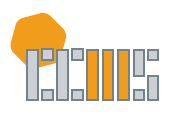Abstract / Synopsis
This review examines Danielle Macbeth’s novel and compelling account of the formal languages of mathematics, from Euclid’s geometrical diagrams to the algebraic equations of Descartes and the differential equations of Newton and Leibniz, to the much more abstract language of Galois, Bolzano and Riemann. She argues that the practice of those 19th century mathematicians, reasoning deductively from abstract concepts like ‘group’ and ‘manifold’, inspired the philosophical logician Gottlob Frege, whose Begriffsschrift captures the procedures of those who reasoned in concepts. However, his way of formalizing mathematical reasoning was obscured by the success of Bertrand Russell and Alfred North Whitehead’s Principia Mathematica, which gave rise to modern predicate logic. Macbeth argues that the Begriffsschrift should be re-examined and revived.
DOI
10.5642/jhummath.201701.20
Recommended Citation
Emily R. Grosholz, "Book Review: Realizing Reason: A Narrative of Truth and Knowing by Danielle Macbeth," Journal of Humanistic Mathematics, Volume 7 Issue 1 (January 2017), pages 263-274. DOI: 10.5642/jhummath.201701.20. Available at: https://scholarship.claremont.edu/jhm/vol7/iss1/20
